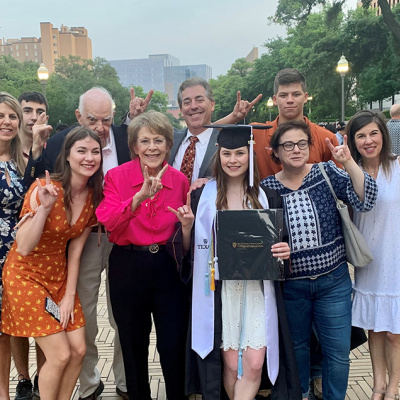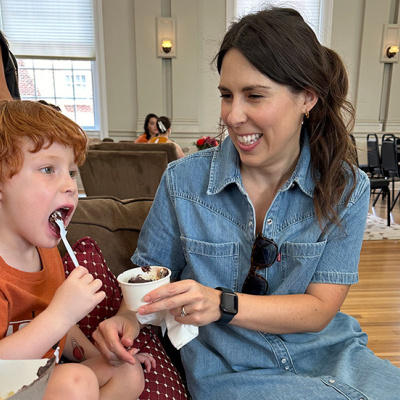#NotOnMyCampusUT Campaign Gains Steam

One night last fall, UT senior Edwin Qian got a text message from a friend who had been at a campus party. "I was raped," it said, "and I don't know what to do."
Neither did Qian. Should he call the police? If so, the campus police or the city police? Or maybe he should encourage his friend to go to the hospital. In the end, she chose not to report her rape. In 2013, only 21 sexual assaults were reported to UT officials. A 2014 Justice Department report found that only 20 percent of female student sexual assault victims go to police.
"My friend was worried about people blaming her for being raped," Qian says. "She didn't feel it was safe to share her story with the police or the school."
Qian says he had heard similar stories from other peers. He started talking about them with Ellen Cocanougher and William Herbst, two of his friends from the Intrafraternity Council and the Panhellenic Council—the student groups that govern fraternities and sororities at UT. Cocanougher and Herbst had stories of their own, and they had seen the hashtag #NotOnMyCampus popping up at Southern Methodist University and Texas Christian University. They had also seen dozens of recent headlines about campus sexual assault, such as the Columbia University student who pledged to carry a mattress with her everywhere until her rapist is prosecuted, and the more complicated University of Virginia saga involving a discredited Rolling Stone story. In recent years, UT-Austin has managed to keep its image nearly squeaky clean when it comes to sexual assault: When two football players were accused of raping a student last year, they were swiftly arrested and booted from both the team and the university.
Still, "I thought it was crazy that UT had never had a movement like this before," Cocanougher says. "So about a month ago, we decided to start it and just see what happened. We had no idea the kind of response we would get."
The three students registered a new organization called Not On My Campus UT and on Monday started blowing up their friends' social media feeds with photos and links to sign a pledge to stand up against sexual assault. The campaign grew exponentially. Asked how many people have signed the pledge, Cocanougher says she can barely keep up: "We've been adding at least 200 people every two hours."
Critics call this type of campaign "slacktivism" and question whether it will add up to anything or simply be another quickly fading meme. (#BringBackOurGirls and #StopKony come to mind.) Unsurprisingly, Qian says emphatically that isn't the case. "Not My Campus UT is here to stay," he says. "We are partnering with campus groups like Voices Against Violence and BeVocal to plan programming, like a speaker series and self-defense classes. Once the media dies down, we'll elect officers for next semester and work on growing the organization. We really want to fill the gap between students and administrators on this."
See how the campaign took off below:
Leslie Cedar photo by Anna Donlan.






